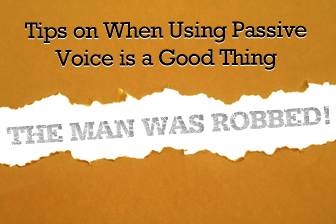How to Teach the Passive Voice – While Being Active!


The preference most of the time is for active speaking with the focus being on someone doing something. Passive voice most often stresses an action and nothing about who is doing it. If these tips on using passive voice are followed, your students will know the right time to step away from active voice and engage in the passive.

One of the most common reasons passive voice is used is to put emphasis not on the who, but on the what. In active speech we are very concerned with who is doing what. Sometimes though for various reasons, the focus is about the action that happened, not who did it. Sometimes it is because we don’t know who did the action. Another reason might be that we don’t really care who did the action.
Some examples are:
News is often delivered this way in both written and spoken forms. It also may be used in discussing product information or reviews or in talking about landmarks and important places.
Another instance where we are not concerned with who is doing something is when we are making general statements or announcement. Passive voice can be used in various tenses to communicate logistics, information, and changes in a generalized way. Putting these statements into passive voice is generally more polite than using active voice.
Some examples are:
This use of passive voice is often utilized in business writing to show results, conclusions, or emphasize results. One reason for this is if we put these sentences into active voice, we may end up stressing the wrong thing. Because we are not providing credit for the results or discussing who could have done something better, passive voice works very well.
For example:
Similar to the above example, when we need to sound objective about a topic and not provide an opinion, we can use passive voice. This can often be used when discussing research outcomes, or again in news reporting.
Here are some examples:
Whether you are just introducing passive voice or are reviewing it for advanced levels, there is always more to learn on this ever-elusive grammar point. A good way to incorporate how different it is from active voice is to show a lot of examples of the uses and compare them to active voice.